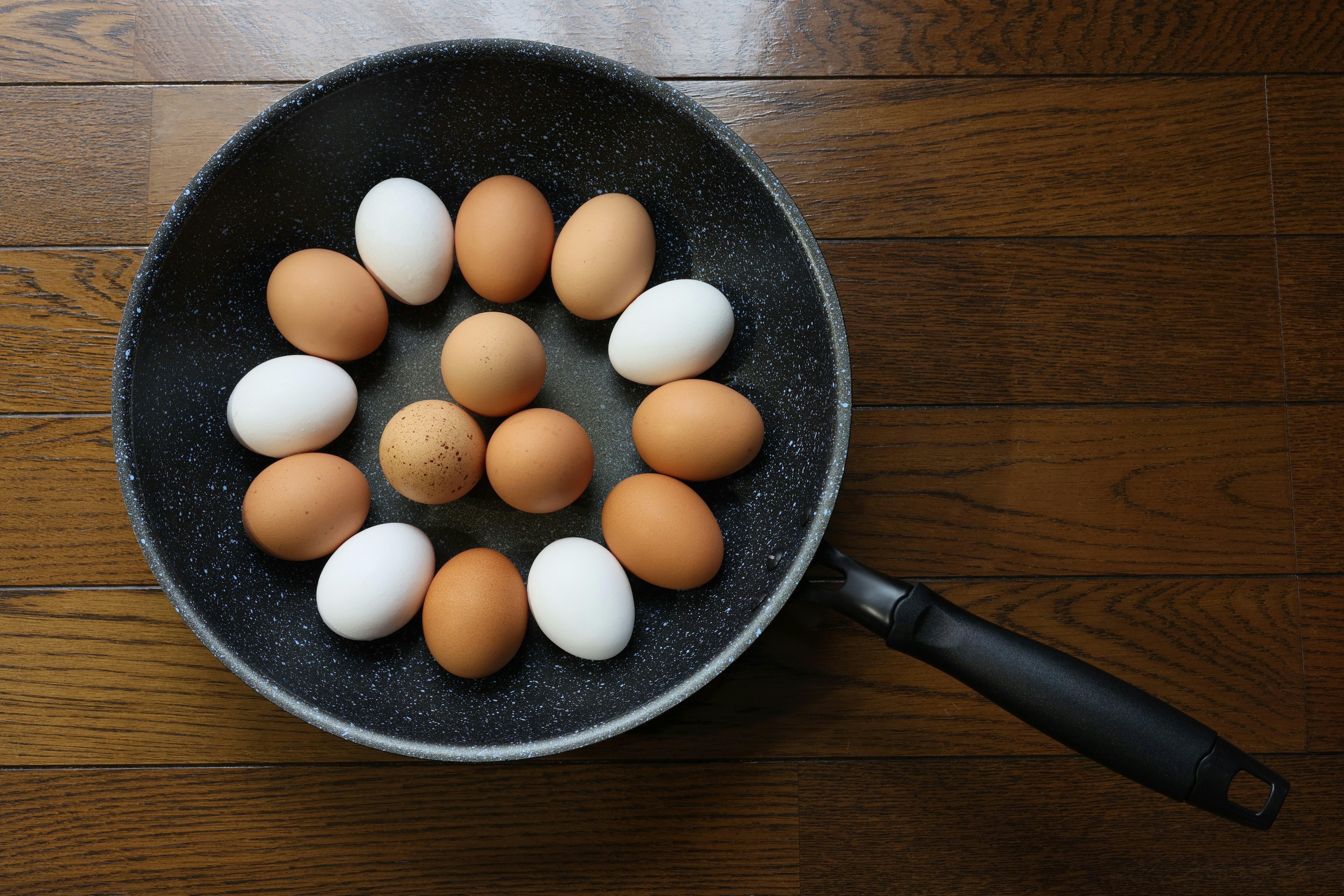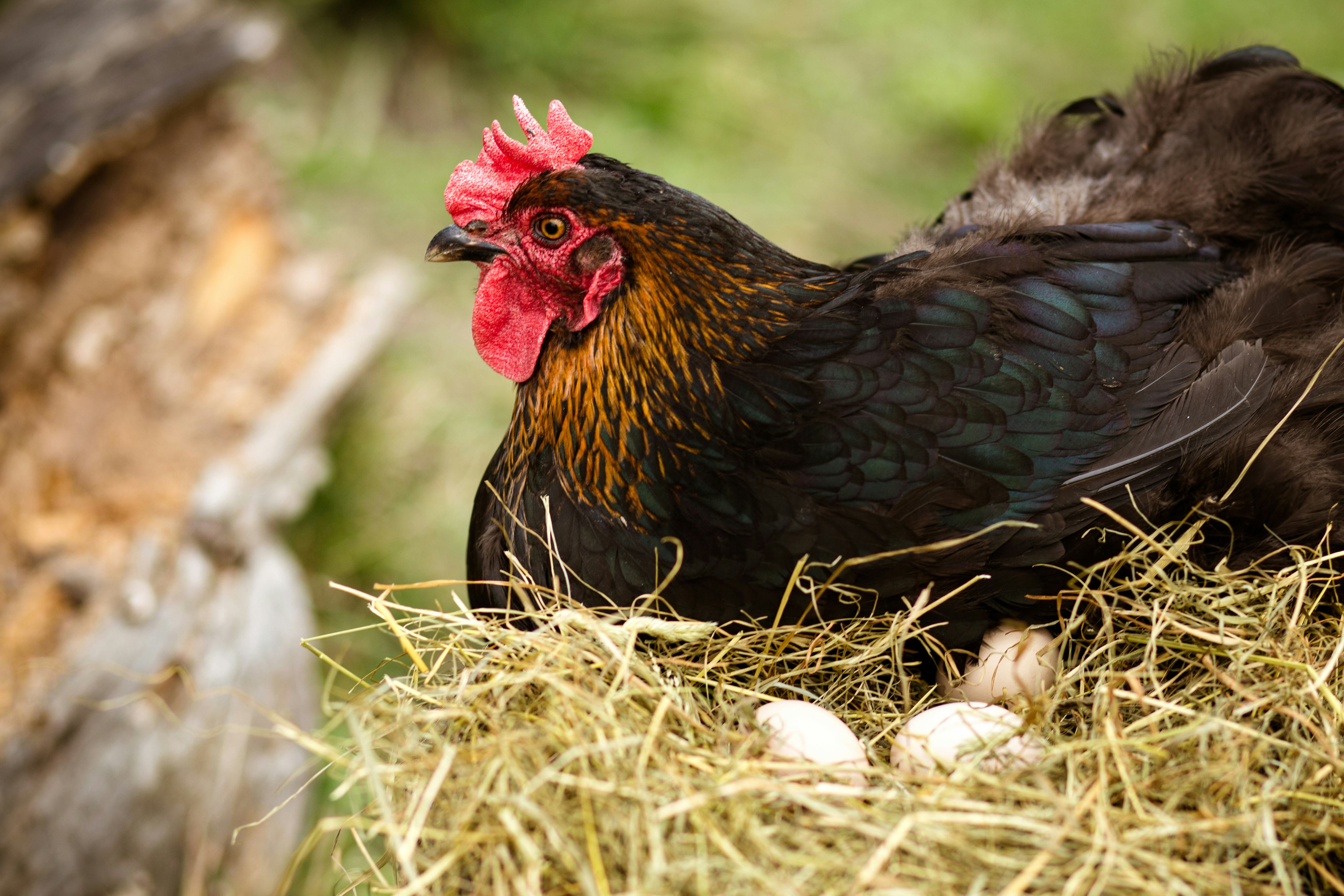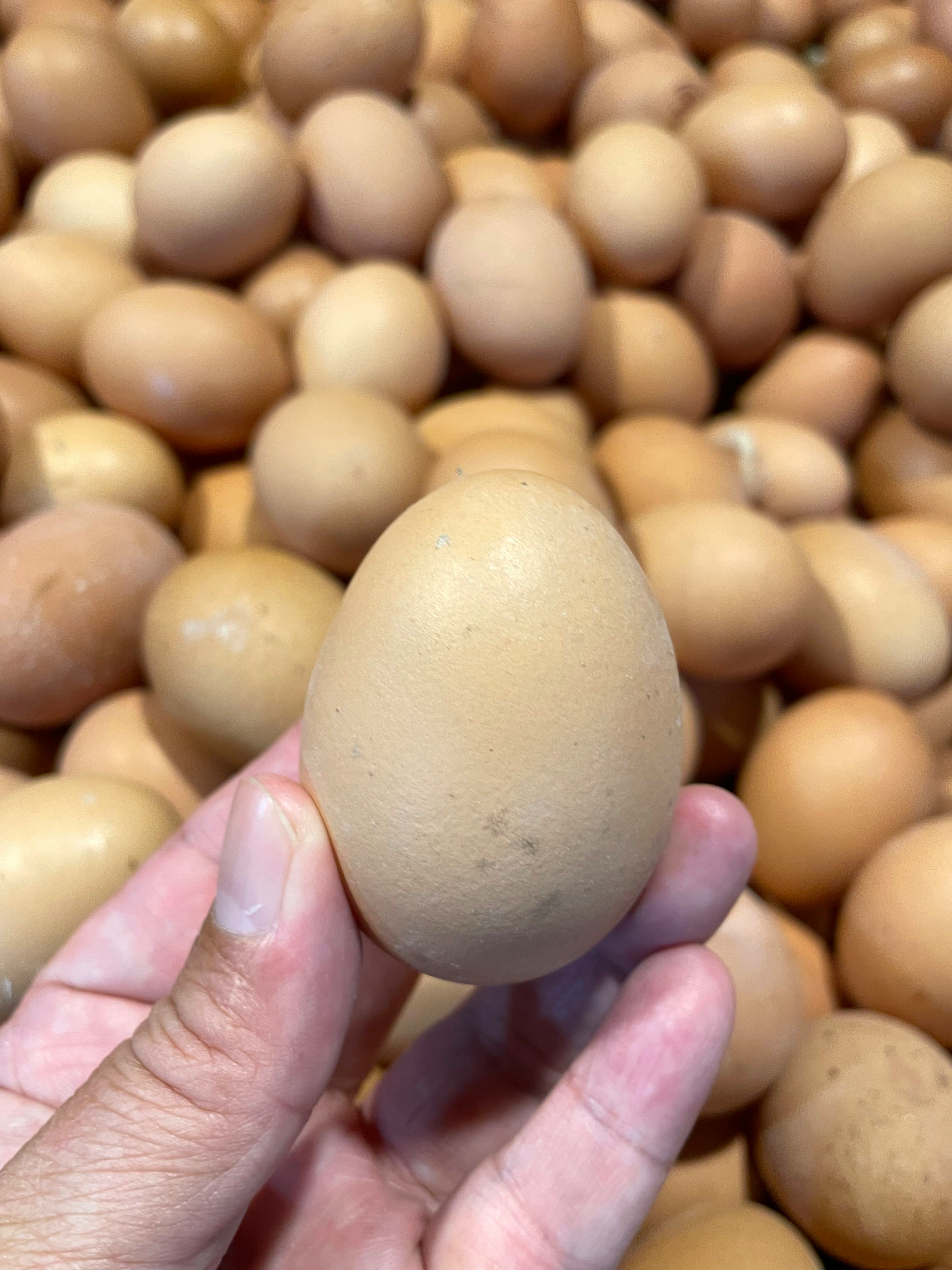
Shopping for food has gotten complicated. Food items are now labeled with a myriad of terms such as gluten-free, heart-healthy, and organic. It’s become increasingly difficult to parse what these words actually mean.
For instance, what exactly makes an egg organic? Shouldn’t all eggs be organic? It's more complicated than you might think, so here’s the nitty-gritty.
What makes eggs organic?
Organic eggs are all about how the parent chicken is treated. The United States Department of Agriculture (U.S.D.A.) has rigorous standards for organic farming of all types under the National Organic Program (N.O.P.). Organic eggs, according to these standards, must come from farms that give their chickens a certain quality of life. For instance, chickens that lay organic eggs must be able to venture outdoors, find shade and direct sunlight, shelter, access clean water, and have areas where they can clean, exercise, and roost.

These chickens don’t need a full pasture, but they do need to be able to roam outdoors. “A healthy environment that minimizes stress is foundational to the production of healthy birds,” U.S.D.A. spokesperson Tammie Wilburn tells Inverse.
Chickens that produce organic eggs also must be kept in healthy environments to minimize the possibility of parasites or illness, which can impact egg quality and production. Still, this doesn’t necessarily translate to humane treatment. An organic farm can technically meet all these requirements, but only give chickens very limited outdoor access. Chickens that do roam have the benefit of feeding on insects and plants in addition to their organic feed.
Organic eggs also come from chickens that feast on a complete diet of vitamins, minerals, and amino acids. The farm must outline all parts of a chicken’s diet in its Organic System Plan, Wilburn says. She adds that the chickens must also be hormone- and antibiotic-free for their eggs to be labeled organic. Parasiticides, which treat infections from parasites, are also not allowed.
These chickens must also be left unscathed by humans. “Physical alterations of organic livestock are allowed only when necessary to promote the animals’ welfare, and when they are performed in a matter that minimizes pain and stress,” Wilburn says. “Most organic producers find alterations such as beak trimming to be unnecessary when they have designed their systems and management practices to provide adequate space.” (Beak trimming is the practice of removing part of or the entire beak with the intent to prevent chickens from injuring each other.)
“Good air quality is extremely important to birds’ health because dust and high levels of ammonia in the air can cause respiratory problems,” Wilburn says.
Once the eggs are lain, handling facilities may use cleaners, shell coating materials, and sanitizers on them. Organic-approved facilities still use these tools, but can only use certain substances.
Are organic eggs healthier than non-organic eggs? What about cage-free or free-range?

An egg is an egg is an egg. An organic and non-organic egg will have essentially the same nutrients but have vastly different journeys. Organic eggs are a top choice for anyone looking to avoid chickens pumped with hormones or that have a significantly more limited farm life.
A bevy of terms overlap in egg production: Cage-free, free-range, and organic can all have different connotations. For example, organic eggs aren’t necessarily from free-range chickens. While cage-free conditions mean the chickens aren’t caged and can get food and water whenever they need it, conditions can still be awful. While one type of egg isn’t necessarily healthier than another, the setting in which the chickens are raised can certainly be more or less healthy.
Are organic eggs worth the higher price?
Organic eggs can cost more than twice what non-organic eggs cost, so the question of accessibility certainly determines this answer. At the end of the day, the biggest difference in choosing organic lies in where the egg came from.
CHECK, PLEASE is an Inverse series that uses biology, chemistry, and physics to debunk the biggest food myths and assumptions.
Now read this: Does coffee make you poop? A gastroenterologist gets to the bottom of it







